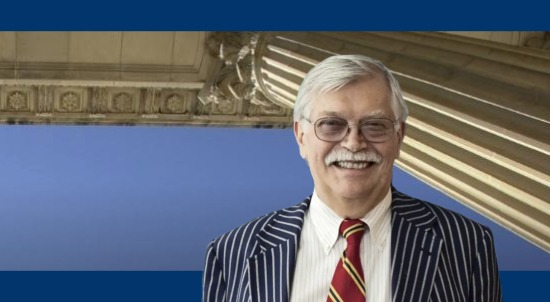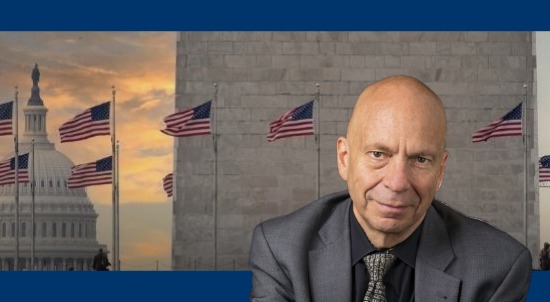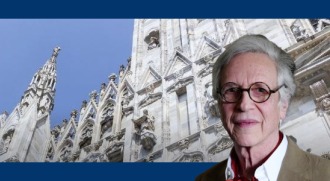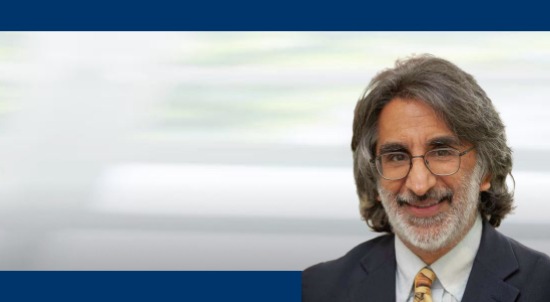
A Journey through Western Christianity: from Persecuted Faith to Global Religion
Published: 11 weeks (46 hours)
Description
This course follows the extraordinary development of Western Christianity from its early persecution under the Roman Empire in the third century to its global expansion with the Jesuits of the early modern world. We explore the dynamic and diverse character of a religion with an enormous cast characters. We will meet men and women who tell stories of faith as well as of violence, suppression, and division. Along the way, we encounter Perpetua and her martyrdom in Carthage; the struggles of Augustine the bishop in North Africa; the zeal of Celtic monks and missionaries; the viciousness of the Crusades; the visions of Brigit of Sweden; and the fracturing of Christianity by Martin Luther’s protest. We hear the voices of great theologians as well as of those branded heretics by the Church, a powerful reminder that the growth of Christianity is a story with many narratives of competing visions of reform and ideals, powerful critiques of corruption and venality, and exclusion of the vanquished. The troubled history of Christian engagement with Jews and Muslims is found in pogroms and expulsions, but also in the astonishing ways in which the culture of the West was transformed by Jewish and Islamic learning. We shall explore the stunning beauty of the Book of Kells, exquisitely prepared by monks as the Vikings terrorized the coast of England. We will experience the blue light of the windows of Chartres, and ponder the opening questions of Thomas Aquinas’ great Summa. We will read from the Gutenberg Bible of the fifteenth century, which heralded the revolution brought by the printing press. We will travel from Calvin’s Geneva to Elizabeth’s England to Trent, where a Catholic Council met to inaugurate a modern, missionary Catholic church. We will walk through the great Escorial of Philip II of Spain, hear the poetry of John of the Cross, and follow the Jesuits to Brazil and China. Christianity in the West was forged in the fires of conflict and tumult, and it brought forth both creativity and violence. It echoed with calls for God’s world to be transformed, it inspired the most sublime art and architecture, yet it also revealed the power of the union of cross and sword to destroy. The course is a journey through the formation of the West as one strand of Christianity, as one chapter in a global story. It is a journey that has shaped our world.
Course Takeaways
- Learn the key figures of early Christianity
- The importance of Egypt and North Africa for the development of Christianity
- The names and stories of early Martyrs
- How Christian monasticism developed
- Christianity’s features, rise, and role during medieval period
- Christianity’s role in scholasticism and the universities of Europe
- Jewish and Muslim traditions in medieval Europe
Meet the Instructors
 A native of Canada, Bruce Gordon taught from 1994 to 2008 at the University of St Andrews, Scotland, where he was professor of modern history and deputy director of the St Andrews Reformation Studies Institute. His research focuses on European religious cultures of the late-medieval and early modern periods, with a particular interest in the Reformation in German-speaking lands. He is the author of Calvin (Yale University Press, 2009), a biography that seeks to put the life of the influential reformer in the context of the sixteenth-century world. It is a study of Calvin’s character, his extensive network of personal contacts and of the complexities of church reform and theological exchange in the Reformation. The Swiss Reformation (Manchester University Press, 2002) (an “Outstanding Publication” for 2003 by Choice Magazine) studies the emergence of the Reformation n the multi-lingual world of the Swiss Confederation and its influence across Europe in the sixteenth century. His book Clerical Reformation and the Rural Reformation (1992) examined the creation of the first Protestant ministry, which took place in the Swiss city of Zurich and its numerous country parishes. In addition, he has edited books on the development of Protestant historical writing, the relationships between the dead and the living in late-medieval and early modern society, the Swiss reformer Heinrich Bullinger, and, most recently, on biblical culture in the sixteenth century. He was the principal investigator of a major grant from the Arts and Humanities Research Council of the United Kingdom on Protestant Latin Bibles of the Sixteenth Century. The project explores the new translations of the Old and New Testaments by Protestant scholars into Latin during the Reformation and the questions posed by these extraordinary works for our understanding of translation, authority, material culture, confessional identity and theological formulation. The monograph is currently being completed. He has started work for Princeton University Press on a study of the reception of Calvin’s Institutes from the Reformation to the modern world. His teaching includes a lecture course on Western Christianity from the early church to the scientific revolution, and seminars on the culture of death, sources and methods of religious history, the Reformation, Calvinism, and the Reformed tradition from Zwingli to postmodernism. He teaches in the Department of History and in Renaissance Studies and works with graduate students on a wide range of topics in early modern religious history. He is on the board of various publishing series: St Andrews Studies in Reformation History (Ashgate), Zürcher Beiträge zur Reformationsgeschichte (Theologischer Verlag Zürcher), and Refo500 Academic Studies (Vandenhoeck &Ruprecht). He is a fellow of the Royal Historical Society and in 2012 received an honorary doctorate from the University of Zurich, Switzerland. (Presbyterian)
Full biography
A native of Canada, Bruce Gordon taught from 1994 to 2008 at the University of St Andrews, Scotland, where he was professor of modern history and deputy director of the St Andrews Reformation Studies Institute. His research focuses on European religious cultures of the late-medieval and early modern periods, with a particular interest in the Reformation in German-speaking lands. He is the author of Calvin (Yale University Press, 2009), a biography that seeks to put the life of the influential reformer in the context of the sixteenth-century world. It is a study of Calvin’s character, his extensive network of personal contacts and of the complexities of church reform and theological exchange in the Reformation. The Swiss Reformation (Manchester University Press, 2002) (an “Outstanding Publication” for 2003 by Choice Magazine) studies the emergence of the Reformation n the multi-lingual world of the Swiss Confederation and its influence across Europe in the sixteenth century. His book Clerical Reformation and the Rural Reformation (1992) examined the creation of the first Protestant ministry, which took place in the Swiss city of Zurich and its numerous country parishes. In addition, he has edited books on the development of Protestant historical writing, the relationships between the dead and the living in late-medieval and early modern society, the Swiss reformer Heinrich Bullinger, and, most recently, on biblical culture in the sixteenth century. He was the principal investigator of a major grant from the Arts and Humanities Research Council of the United Kingdom on Protestant Latin Bibles of the Sixteenth Century. The project explores the new translations of the Old and New Testaments by Protestant scholars into Latin during the Reformation and the questions posed by these extraordinary works for our understanding of translation, authority, material culture, confessional identity and theological formulation. The monograph is currently being completed. He has started work for Princeton University Press on a study of the reception of Calvin’s Institutes from the Reformation to the modern world. His teaching includes a lecture course on Western Christianity from the early church to the scientific revolution, and seminars on the culture of death, sources and methods of religious history, the Reformation, Calvinism, and the Reformed tradition from Zwingli to postmodernism. He teaches in the Department of History and in Renaissance Studies and works with graduate students on a wide range of topics in early modern religious history. He is on the board of various publishing series: St Andrews Studies in Reformation History (Ashgate), Zürcher Beiträge zur Reformationsgeschichte (Theologischer Verlag Zürcher), and Refo500 Academic Studies (Vandenhoeck &Ruprecht). He is a fellow of the Royal Historical Society and in 2012 received an honorary doctorate from the University of Zurich, Switzerland. (Presbyterian)
Full biography



